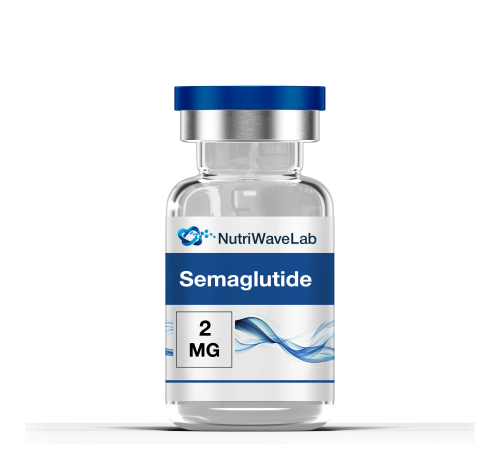
Sema
Research Applications:
- Anti-obesity and weight loss
- Glycemic control
- Cardiovascular health
- Neuroprotection
FDA Approval: Approved for Type 2 Diabetes (T2D) and weight management in overweight/obese individuals.
What is Sema?
Sema is a synthetic analog of the
glucagon-like peptide-1 (GLP-1), consisting of 31 amino acids. It belongs to
the class of drugs known as GLP-1 receptor agonists (GLP-1 RAs).
Sema is unique among GLP-1 RAs as it
is FDA-approved in both oral and injectable forms. It is used for treating
diabetes and managing weight in individuals with obesity or excess weight, and
it also helps reduce cardiovascular risk in patients with type 2 diabetes.
Like endogenous GLP-1, sema is
released in the gastrointestinal tract upon food intake, aiding in blood
glucose control and appetite regulation. Semaglutide is 94% similar to natural
GLP-1 but is modified to enhance stability and extend its duration of action,
increasing its therapeutic effectiveness.
Sema has a favorable safety profile
when used as directed, and ongoing research may uncover additional therapeutic
benefits.
How Sema Works
Semaglutide stimulates GLP-1 receptors, leading
to increased insulin secretion and decreased glucagon levels, thereby improving
blood glucose control. It slows gastric emptying and reduces appetite,
contributing to weight loss.
In patients with type 2 diabetes,
semaglutide has been shown to significantly lower HbA1c and fasting plasma
glucose levels within 12 weeks of use. It also enhances cardiovascular health
and has anti-inflammatory properties.
Benefits of Semaglutide
- Type 2 Diabetes Treatment:
Semaglutide effectively lowers blood sugar levels and improves glycemic
control when combined with diet and exercise. It has a reduced risk of
hypoglycemia compared to other antidiabetic drugs.
- Cardiovascular Risk Reduction:
Semaglutide helps reduce the risk of cardiovascular events like stroke and
heart attack due to its anti-inflammatory effects and reduction of
visceral fat.
- Weight Loss: Semaglutide shows high
effectiveness in reducing weight in individuals with obesity and excess
weight. It enhances satiety and reduces caloric intake, leading to significant
weight loss.
- Other Potential Benefits: Emerging
studies suggest additional advantages, including improvements in
nonalcoholic steatohepatitis (NASH) and potential neuroprotective effects.
Semaglutide is approved for both diabetes
management and weight management in individuals with related health conditions.
Ongoing research continues to reveal more about its potential benefits.
Side Effects and Safety
Semaglutide, approved by the FDA, generally has a favorable safety profile, but it's important to be aware of potential side effects and precautions.
Common Side Effects: Most side effects are mild and temporary, including gastrointestinal issues such as.
Constipation
Diarrhea
Indigestion
Abdominal pain
Nausea
Vomiting
Risks:
Gastrointestinal upset and related reactions
Link to thyroid C-cell tumors in rodent studies
Contraindicated in Multiple Endocrine Neoplasia syndrome type 2 (MEN 2)
Risk of acute and chronic pancreatitis (avoid use in individuals with pancreatitis)
These effects usually resolve as the body adjusts to the treatment. They are likely related to changes in nutrient absorption and gastric motility. Oral formulations may cause more pronounced gastrointestinal symptoms, while injectable forms can lead to irritation at the injection site.
Product Use: THIS PRODUCT IS STRICTLY FOR
SCIENTIFIC RESEARCH PURPOSES ONLY. It should only be used in laboratory
settings. All product information on this website is provided solely for
educational purposes. The law strictly prohibits introducing this product into
the body of humans or animals. Only licensed professionals should handle this
product. This product is not a drug, food, or cosmetic and should not be
improperly classified or used as such.
There are no reviews for this product.
No questions about this product.
